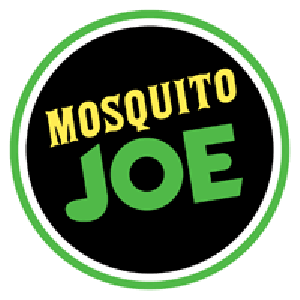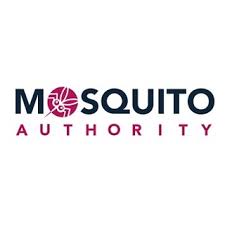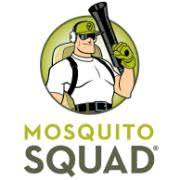Mosquito Joe Franchise in 2025: Costs, Fee & FDD
Looking to invest in a growing, seasonal business with strong market demand? Discover how Mosquito Joe’s proven franchise model, low start-up costs, and comprehensive support make it a top choice for potential franchisees. Read more!
Table of Contents:
Mosquito Joe is a leading franchise in the pest control industry, founded in 2010 with the goal of offering outdoor pest control services primarily focused on mosquitoes, ticks, and fleas. The brand quickly grew, establishing itself as a trusted name in the market by providing high-quality, seasonal treatments that allow customers to enjoy their outdoor spaces pest-free. As a part of Neighborly, a globally recognized home services company, Mosquito Joe benefits from industry credibility and a well-established support network, making it an attractive option for potential franchisees.
Mosquito Joe’s core offerings include barrier sprays, misting systems, and natural treatment options, designed to effectively reduce mosquito populations in residential and commercial spaces. Ancillary services include tick and flea control, catering to families with pets or those living in wooded areas. The franchise serves homeowners, event organizers, and businesses with outdoor spaces, making it ideal for suburban markets where outdoor activities are a priority. Its customer base primarily consists of families, pet owners, and outdoor enthusiasts seeking protection from pests.
With over 400 locations spread across 39 states in the U.S., Mosquito Joe has grown into a highly scalable operation. Each franchise serves thousands of customers throughout the mosquito season, which typically runs from spring to fall. The company’s customer base has been expanding rapidly due to increasing concerns about vector-borne diseases like West Nile Virus and Lyme disease, which has further boosted the demand for its services. The company is strictly U.S.-based, but its success has positioned it as a dominant player in the pest control industry.
Mosquito Joe provides robust support for its franchisees, including a comprehensive training program that covers operational procedures, sales strategies, and local marketing techniques. Franchisees receive help with site selection, marketing materials, and ongoing support through business coaches and regional operations teams. This support network, coupled with its strong brand recognition, makes Mosquito Joe an appealing opportunity for those looking to enter the pest control industry with a proven system behind them.
Mosquito Joe Franchise Insights
- Mosquito Joe’s business model focuses on providing seasonal services, allowing franchisees flexibility and the potential for significant revenue during peak months.
- The franchise taps into a growing awareness of health and outdoor living, making it an attractive option for families and businesses that prioritize safe, pest-free environments.
- As part of the Neighborly network, Mosquito Joe franchisees gain access to a wide-reaching customer base and valuable cross-marketing opportunities with other home service brands.
- The simplicity of the service model allows for easy scalability, enabling franchisees to expand their customer base without the need for a large staff or complex infrastructure.
- Mosquito Joe places a strong emphasis on local marketing support, helping franchisees grow their presence within their communities and build long-term customer relationships.
Mosquito Joe Franchise Key indicators
Unit Growth YOY (%)
6%
vs industry 4%
Total U.S. Franchised Units
416
3-Year Failure Rate
4%
vs industry 13%
Sales-to-Investment ratio
2:1
How much does it cost to open a Mosquito Joe franchise?
Understanding the potential investment size and capital requirements is crucial when considering opening a Mosquito Joe franchise. These financial commitments, including initial franchise fees, equipment costs, and ongoing operational expenses, impact the feasibility and profitability of the venture. Thoroughly evaluating these factors ensures that potential franchisees are prepared for the financial responsibilities and can make informed decisions about their ability to sustain and grow the business, ultimately contributing to long-term success.
Min & Max Investment
Opening a Mosquito Joe franchise involves several key costs, which are outlined in Item 7 of the Franchise Disclosure Document (FDD). You can see a breakdown of the costs to open a Mosquito Joe below from the most recent Item 7 below:
| Type of Expenditure | Minimum Investment | Maximum Investment |
|---|---|---|
| Initial Franchise Fee | $42,500 | $42,500 |
| Direct Marketing Program/Set Up Fee and Annual Program Fee | $38,000 | $38,000 |
| Direct Marketing Program/Annual Mailing List Fee | $1,250 | $1,750 |
| SEO Program Fee (3 months) | $300 | $900 |
| Real Property | $0 | $6,000 |
| Office Furnishings, Signage & Fixtures | $0 | $2,000 |
| Tools, Equipment, Products, Uniforms & Supplies | $5,500 | $6,500 |
| Vehicle, Shelving & Decals | $3,000 | $10,000 |
| Initial Training | $100 | $2,000 |
| Insurance, Office & Marketing Supplies & Forms | $5,500 | $6,500 |
| Professional Fees | $0 | $1,000 |
| Licenses | $100 | $3,200 |
| Computer, Internet, Phones, Software Setup | $2,600 | $5,100 |
| Deposits | $0 | $4,000 |
| Additional Funds (3 months) | $16,780 | $28,050 |
| Total Estimated Initial Investment | $114,630 | $156,500 |
Item 7 in the Franchise Disclosure Document (FDD) is the “Estimated Initial Investment” section. It outlines the total costs a franchisee can expect to incur when starting a franchise, including the initial franchise fee, equipment, inventory, real estate, and other startup expenses. This section is crucial because it provides potential franchisees with a detailed understanding of the financial commitment required, helping them assess affordability and plan their investment strategy effectively.
Required Capital
For Mosquito Joe, the required capital, liquid assets, and net worth are relatively standard for the pest control franchise industry. Based on available estimates and general industry standards for franchises of this nature:
- Initial Investment Mosquito Joe’s initial investment typically ranges from $115,000 to $157,000. This amount covers the franchise fee, training, equipment, and other startup costs associated with launching the business. Assuming that you will finance your franchise investment, you should plan to have 20% of the total investment amount in the form of equity (cash) for the investment.
- Liquid Assets Franchisees are expected to have liquid assets in the range of $60,000 to $100,000. This ensures sufficient working capital to cover operational costs, marketing, and payroll during the ramp-up period.
- Net Worth The net worth requirement for Mosquito Joe franchisees typically falls between $250,000 to $350,000. This ensures franchisees have the financial stability to grow the business and handle any unforeseen expenses.
These figures are estimates based on industry standards, and it’s always a good idea to confirm specifics directly with Mosquito Joe.
How much does a Mosquito Joe franchise owner make?
Calculating the salary of a Mosquito Joe franchise owner involves analyzing gross sales to determine total revenue, assessing operational efficiency to understand profit margins, and accounting for franchisor fees and additional expenses such as rent, utilities, and payroll. Effective management of these factors can significantly impact the profitability and financial success of a Mosquito Joe franchise owner. This comprehensive financial analysis helps estimate net profits, from which the owner’s salary can be derived. A clear understanding of these factors ensures accurate salary projections and financial planning for sustainable business operations.
Mosquito Joe Revenue & Gross Sales
Based on the most recent analysis, Mosquito Joe franchises achieved a median gross sales of $273,000, demonstrating consistent demand for its services. This solid financial performance highlights the franchise’s potential for generating steady revenue, especially in regions with high seasonal pest control needs.
Which key factors impact the average revenue performance of Mosquito Joe franchisees?
The performance of Mosquito Joe franchisee median gross sales this past year can be attributed to several key factors. First, the increasing awareness of mosquito-borne diseases has heightened demand for reliable pest control services, particularly in suburban and rural areas. Additionally, the shift towards more outdoor living spaces, driven by home improvement trends and post-pandemic lifestyles, has increased the need for mosquito control. The franchise’s strong marketing efforts, backed by Neighborly, and its eco-friendly service options have also helped attract a broader customer base. Finally, consistent customer retention through recurring treatment packages has played a significant role in maintaining steady revenues year over year.
Mosquito Joe Franchise Operational Costs
Operational costs for a franchise like Mosquito Joe are the ongoing expenses required to run the day-to-day operations of the business. These costs are essential for maintaining the business’s functionality and ensuring smooth operations. For a Mosquito Joe franchise, operational costs include:
- Labor Costs Wages, benefits, and training for technicians who handle mosquito, tick, and flea control treatments. This also includes any certifications or licenses required for compliance with local regulations.
- Vehicle Expenses Since Mosquito Joe operates as a mobile service, costs related to vehicle maintenance, fuel, insurance, and leasing are significant. These expenses are ongoing throughout the season.
- Product and Treatment Supplies The cost of purchasing and restocking chemicals, pest control products, and equipment necessary for each service call. This includes barrier sprays, misting systems, and any eco-friendly treatment options offered.
- Marketing and Local Advertising While some marketing support is provided by the corporate team, local advertising efforts such as digital ads, community sponsorships, and event promotions will incur ongoing costs to grow your customer base.
- Insurance Franchisees must maintain insurance policies such as general liability, workers’ compensation, and vehicle insurance to protect both the business and employees.
- Technology and Software Costs for maintaining scheduling software, GPS tracking systems for vehicles, and any other technology needed for efficient operation and customer service management.
- Miscellaneous Costs Additional costs may include uniforms, office supplies, professional fees for legal or accounting services, and any other unforeseen expenses that arise while running the business.
Careful management of these operational costs is essential to ensuring the profitability and long-term success of your Mosquito Joe franchise.
Mosquito Joe Franchise Fees
When opening a Mosquito Joe franchise, it’s important to consider the ongoing fees associated with running the business. These fees are integral to maintaining your franchise rights and keeping up with corporate expectations. Below are some key fees to keep in mind:
- License Fee This fee is 10% of Gross Sales up to $500,000 per year, with a reduced fee of 7% for Gross Sales above $500,000.
- Marketing and Advertising Program (MAP) Fee This fee is 2% of Gross Sales and is payable weekly along with the License Fee. It covers brand development, internet marketing, production of promotional materials, and includes a license for WebPunch software to support your marketing efforts.
- Additional Fees Other potential fees could arise related to technology, training, or additional services provided by the franchisor. It’s important to review the franchise agreement carefully to understand all potential costs.
Carefully planning for these fees will ensure that you can manage the financial aspects of your Mosquito Joe franchise smoothly, allowing you to focus on growing your business.
Mosquito Joe Franchise Earnings
For a Mosquito Joe franchise, the earnings potential varies depending on factors like market size, local demand, and your ability to manage operations effectively. The median gross sales for a franchise is around $273,000 annually. While this represents typical performance, actual earnings may fluctuate depending on how well you market and scale your business during peak mosquito season.
As an owner-operator, you can expect an estimated annual income of approximately $65,000 based on median gross sales and industry profit margins. This figure accounts for running day-to-day operations yourself, which helps reduce labor costs. While this income level reflects typical performance, it’s important to note that higher sales volumes and efficient management can lead to increased profitability over time, especially as your business gains traction in your community.
How to Open a Mosquito Joe Franchise
The process of becoming a Mosquito Joe franchisee involves several key steps, from the initial inquiry to the start of business operations. Here’s an overview of the steps involved:
- Initial Inquiry You or your franchise specialist submits an initial inquiry basic information about your interest and background. You should also conduct thorough research on the franchise, including seeing all of the information available on the Vetted Biz franchise intelligence platform, including access to the most recent Franchise Disclosure Document (FDD).
- Franchise Application After reviewing the initial information, you’ll complete a formal franchise application. This step includes assessing your financial qualifications, business background, and suitability as a potential franchisee.
- Discovery Process You’ll engage in a series of discussions with the Mosquito Joe franchise team, possibly including attending a discovery day. This allows you to meet the leadership team, learn more about the operational and marketing systems, and ask questions.
- Franchise Agreement If both parties feel it’s a good fit, you’ll receive a franchise agreement to review and sign. At this stage, you’ll also pay any initial franchise fees required to officially become part of the system.
- Training & Support After signing the agreement, you’ll attend comprehensive training sessions that cover all aspects of the business, including operational processes, marketing strategies, and customer service standards.
- Site Selection & Setup If your franchise requires a physical location, you’ll work with the Mosquito Joe team to select a suitable territory or base of operations. This includes establishing operational infrastructure, securing vehicles, and stocking necessary supplies.
- Grand Opening Once training is complete and your business setup is in place, you’ll prepare for your grand opening with the help of Mosquito Joe’s marketing and support team to ensure a successful launch.
With these steps completed, you’re ready to begin operations and start serving your local community as a Mosquito Joe franchisee.
Pros & Cons
Pros
Growing Market Demand: Increased awareness of mosquito-borne diseases has created rising demand for outdoor pest control services, making this franchise highly relevant.
Seasonal Flexibility: With operations primarily during the mosquito season (spring to fall), this model offers flexibility and potentially allows for a balanced work-life schedule during the off-season.
Scalable Business: With relatively low overhead and no need for a brick-and-mortar location, the business is easy to scale, allowing you to expand operations over time.
Low Initial Investment: Compared to other franchises, Mosquito Joe has a relatively low start-up cost, making it an accessible opportunity for many potential investors.
Cons
Weather Dependency: Business success can be influenced by weather patterns, with fewer pests and therefore less demand during unusually dry or cool seasons.
High Local Competition: Depending on your territory, you may face competition from other pest control services, which could require additional marketing efforts to stand out.
Labor Management: Managing technicians and ensuring consistent, quality service can be challenging, especially during peak times when demand is highest.
Potential Saturation: In some areas, the brand’s expansion may lead to market saturation, which could limit future growth opportunities in nearby territories.



